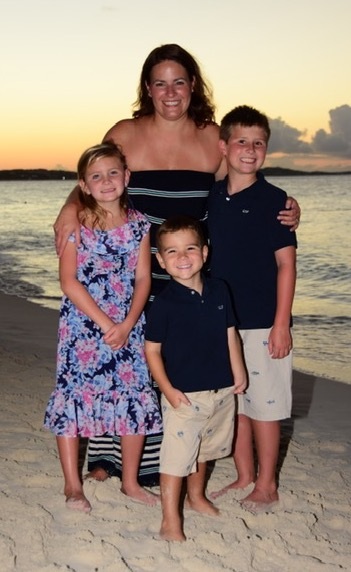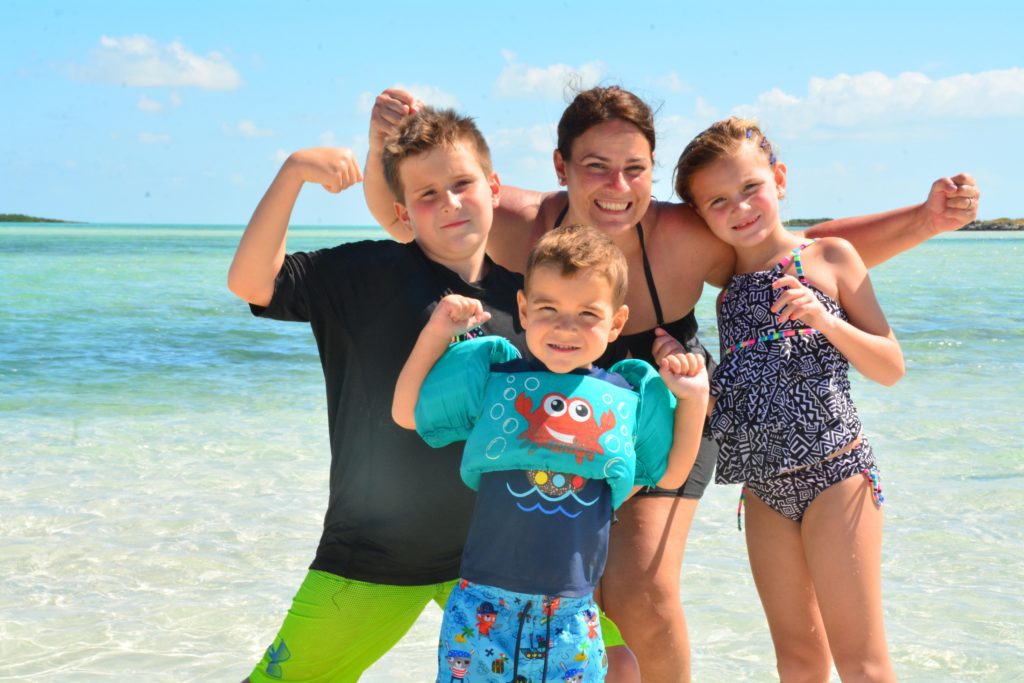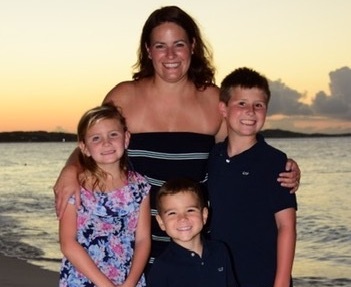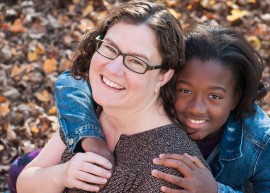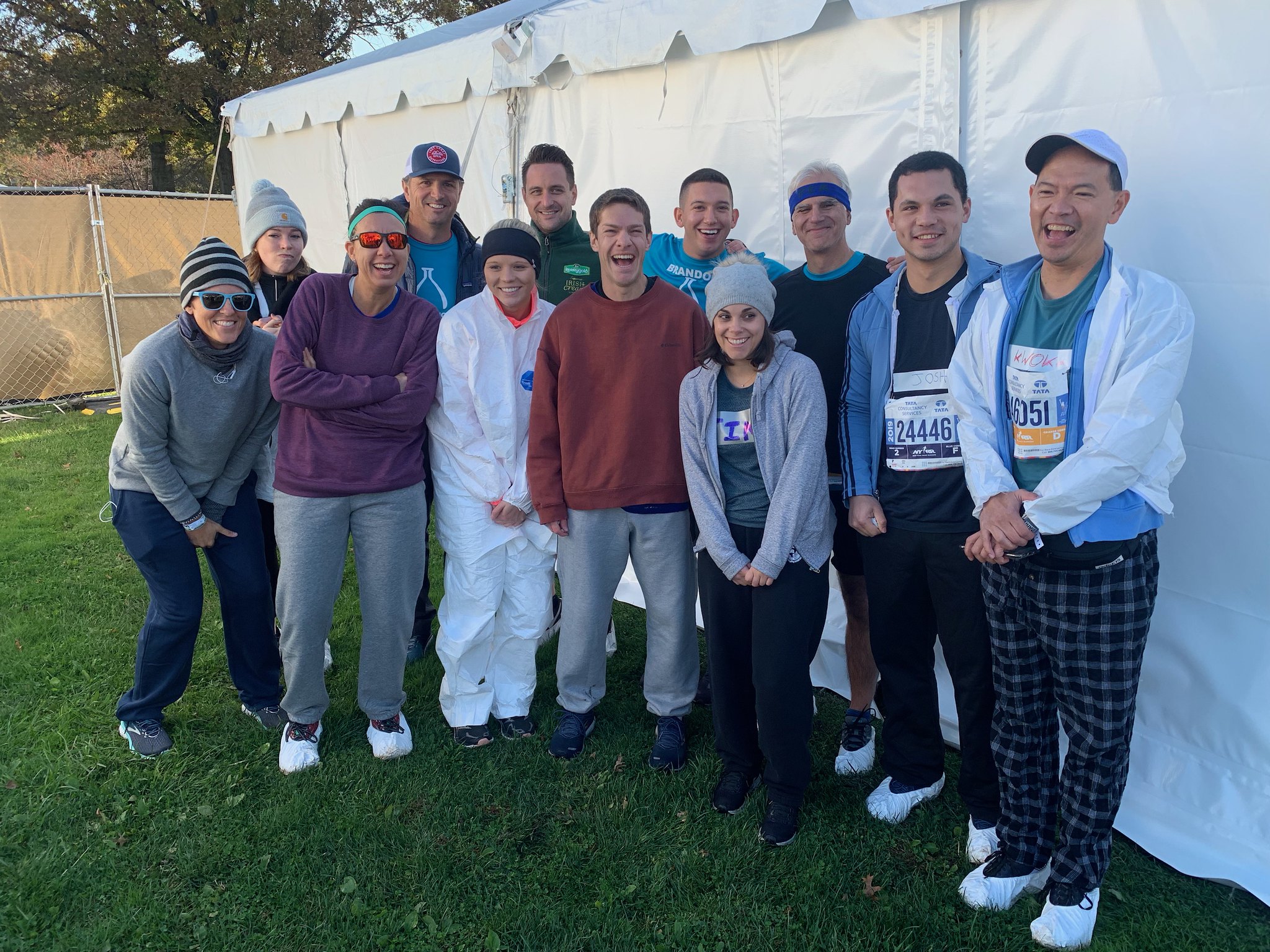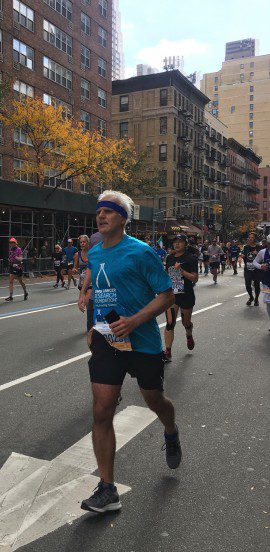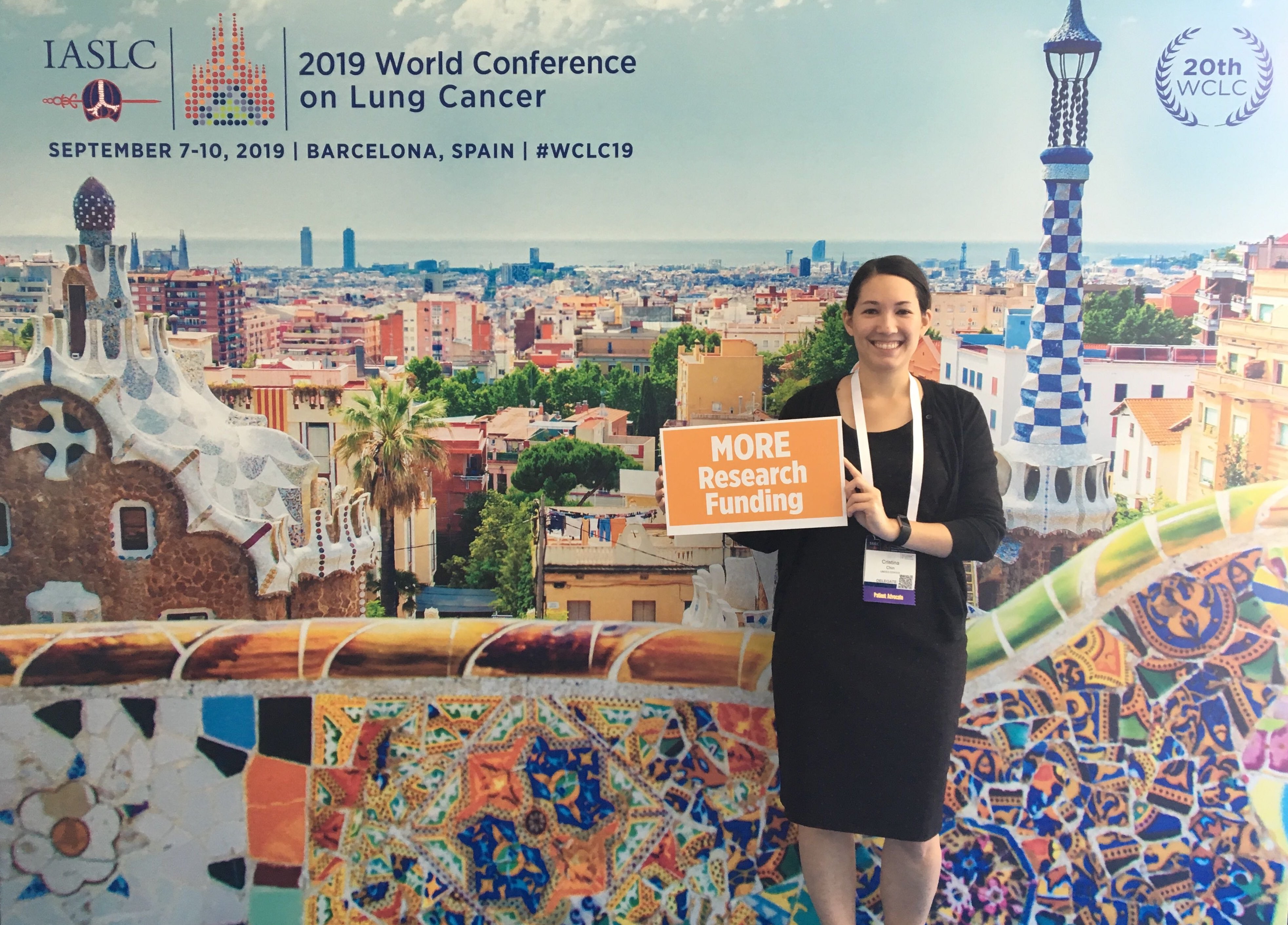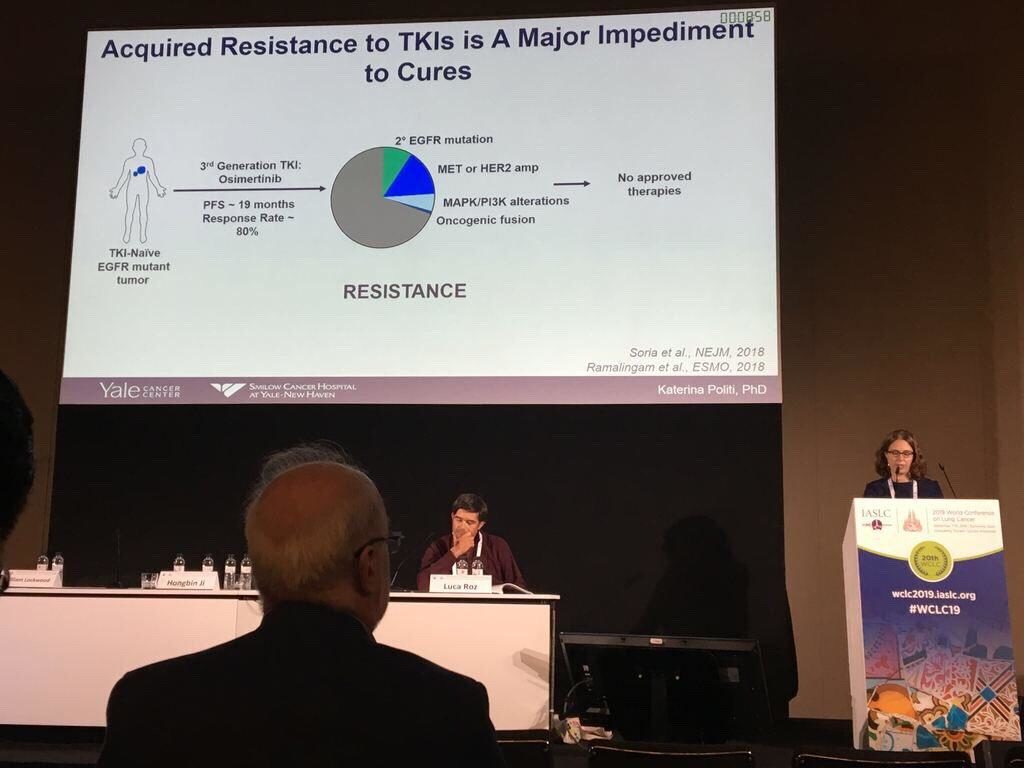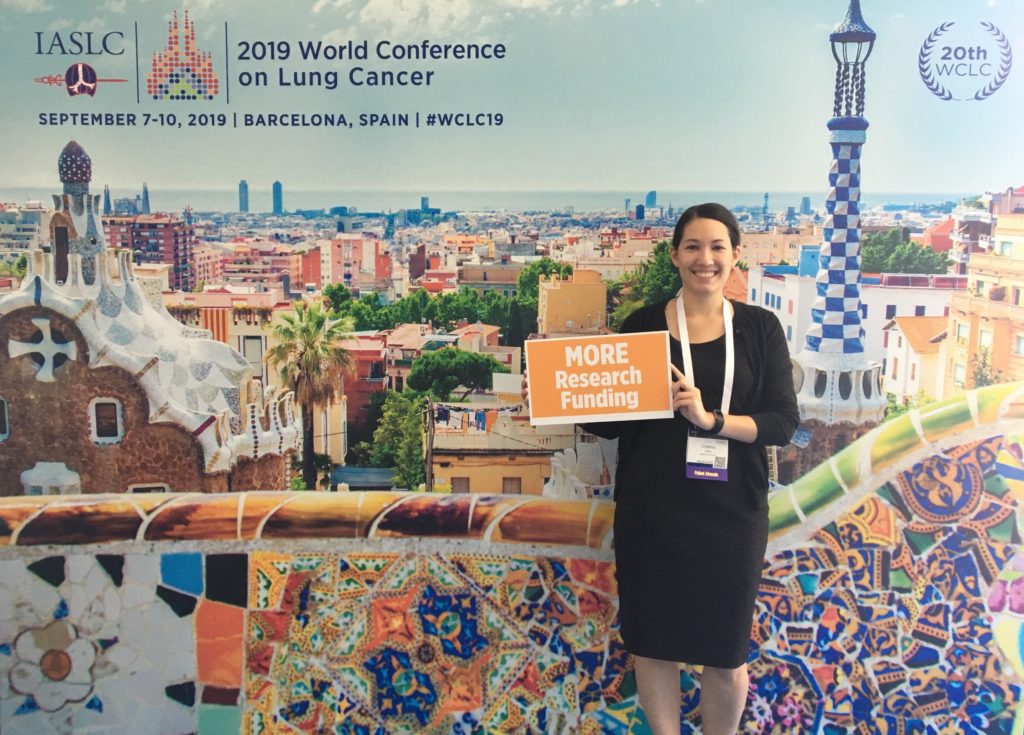NEW YORK, November 12, 2019 — Today the Lung Cancer Research Foundation® (LCRF) announced the awardees of its 2019 Scientific Grant Program during the Fourteenth Annual Lung Cancer Awareness Luncheon, held at The Pierre in New York City. Through this program, LCRF awarded $2.6 million in research grants to 12 investigators whose projects focus on basic, translational, clinical, health services and epidemiological research. In addition to its annual pilot grants, for the first time, LCRF awarded research grants through two additional funding mechanisms: one focused on overcoming disparities in lung cancer and one on improving the effectiveness of targeted therapies.
LCRF is the leading nonprofit organization focused on funding innovative, high-reward research with the potential to extend survival and improve quality of life for people with lung cancer. To date, LCRF has funded 370 research grants totaling nearly $34 million, the highest amount provided by an organization dedicated to funding lung cancer research.
“As a lung cancer researcher and former LCRF grantee, I know first-hand the importance and impact LCRF’s funding has on the careers of junior scientists,” said Katerina Politi, PhD, Chair of LCRF’s Scientific Advisory Board and Clinical Biologist and Associate Professor at Yale’s School of Medicine. “Through the grant program, LCRF supports both cutting-edge lung cancer research and researchers. We are confident that these projects will lead to advancements that will ultimately have a direct impact on lung cancer patients.”
Through its annual pilot grant program, LCRF funds innovative research focused on the prevention, diagnosis, treatment and cure of lung cancer. This year, LCRF will be funding four projects through this mechanism. Among them are the prestigious James B. Dougherty Award for Scientific Merit and the William C. Rippe Award for Distinguished Research in Lung Cancer. The James B. Dougherty Award for Scientific Merit is named in honor of Dr. James Dougherty, who served as the Chair of the LCRF Scientific Advisory Board for the past 13 years and is responsible for stewarding the growth of the grant program. The award is presented to the investigator whose proposal was selected for outstanding overall merit by the Foundation’s Scientific Advisory Board. This year’s recipient is Lingtao Jin, PhD, Assistant Professor at the University of Florida in the Department of Anatomy and Cell Biology. Dr. Jin’s research project is titled, “The role of protein kinase signaling in cisplatin-resistant ASCL1-high subtype small cell lung cancer.”
“It is my distinct honor to receive the James B. Dougherty Award for Scientific Merit,” said Dr. Jin. “This award provides critical support and funding to investigate the development of chemotherapy resistance in small cell lung cancer.”
LCRF’s William C. Rippe Award for Distinguished Research in Lung Cancer is presented to the investigator whose proposal not only demonstrated exceptional scientific merit but also exemplified an enduring commitment to making an impact in the field of lung cancer research. Benjamin Lok, MD, Clinician Scientist at the University of Toronto’s Princess Margaret Cancer Centre, was named the 2019 recipient of this award. His research project is titled, “Investigating a resistance mechanism mediated by a Skp, Cullin, F-box containing E3 ubiquitin ligase complex in small cell lung cancer.”
“I am incredibly honored to receive the William C. Rippe Award for Distinguished Research in Lung Cancer from the Lung Cancer Research Foundation,” said Dr. Lok. “This award is a testament to and recognition for the work my laboratory and clinical teams do every day towards the goal of improving outcomes for patients with lung cancer. We do this in partnership with our patients and colleagues – therefore this award is also for them.”
LCRF’s funding mechanism focused on overcoming disparities in lung cancer was founded with support from the Stavros Niarchos Foundation (SNF), in loving memory of Kathryn Louloudis. This year, LCRF will be funding four projects in this area, supported by additional corporate partners, focused on topics including gender, racial, and socioeconomic disparities in care and outcomes. These projects will address important questions across the care continuum and ultimately help to overcome the significant gaps in health equity among lung cancer patients.
Through a collaboration with Pfizer Inc., LCRF will be awarding four research grants focused on understanding ways to improve clinical practices for managing side effects in patients with non-small cell lung cancer (NSCLC) who are receiving targeted therapies. These research projects will leverage multidisciplinary approaches to help patients and their care teams manage side effects and receive the maximum possible benefit of these important therapies. This Lung Cancer Treatment Focused Research Grant Program is the first collaboration of its kind in lung cancer and is very important and timely to the many patients receiving targeted therapies.
In addition to the presentation of the 2019 Scientific Grant Program awards, LCRF’s Lung Cancer Awareness Luncheon featured two guest speakers. Giuseppe Giaccone, MD, PhD, Associate Director for Clinical Research at Cornell University delivered the keynote address. LCRF Board Member and lung cancer survivor Reina Honts shared her experience and talked about the importance of research funding and early detection.
The 2019 Pilot Grant Program award recipients include*:
Alice Berger, PhD
Fred Hutchinson Cancer Research Center
Novel strategies for therapeutic target discovery in lung cancer
Lingtao Jin, PhD
University of Florida
The role of protein kinase signaling in cisplatin-resistant ASCL1-high subtype SCLC
Benjamin Lok, MD
Princess Margaret Cancer Centre, University of Toronto
Investigating a resistance mechanism mediated by a Skp, Cullin, F-box containing E3 ubiquitin ligase complex in small cell lung cancer
Zhan Yao, PhD
Memorial Sloan Kettering Cancer Center
Studies on the oncogenic function and mediation of drug resistance by ARAF in lung cancer
The 2019 Disparities in Lung Cancer Research Grant Program award recipients include*:
Melinda Aldrich, PhD, MPH
Vanderbilt University Medical Center
Identifying determinants of racial disparities in lung cancer stage
Manali Patel, PhD, MPH
Stanford University
Reducing disparities in lung cancer through community partnerships
Betsy Risendal, PhD
University of Colorado Denver
Improving preventive care to address lung cancer disparities
Rajwanth Veluswamy, MD
Icahn School of Medicine at Mount Sinai
Assessing the mechanisms underlying the association between sex and immunotherapy response
The 2019 Lung Cancer Treatment Focused Research Grant Program award recipients include**:
Ryan Gentzler, MD
University of Virginia
Real-time monitoring and modeling of symptoms and adverse events in lung cancer patients receiving oral targeted therapies for tumors with oncogenic driver mutations
Nisha Mohindra, MD
Northwestern University Feinberg School of Medicine
Using the novel 4R patient care sequences to improve the duration and outcomes of therapy in NSCLC patients receiving targeted treatment
Katharine Rendle, PhD, MSW, MPH
University of Pennsylvania
Implementation strategies for monitoring adherence in real-time (iSMART)
Christian Rolfo, MD, PhD, MBA
University of Maryland, Baltimore
Proactive monitoring of treatment related adverse events through a mobile application in NSCLC patients treated with tyrosine kinase inhibitors: the “Empower Me” Digital Therapeutic Study
For more information about LCRF and the Scientific Grant Program, visit lcrf.org.
*These grants provide up to $150,000 in funding over a two-year period
** These grants provide up to $350,000 in funding over a two-year period
###
About the Lung Cancer Research Foundation®
The Lung Cancer Research Foundation (LCRF) is the leading nonprofit organization focused on funding innovative, high-reward research with the potential to extend survival and improve quality of life for people with lung cancer. LCRF’s mission is to improve lung cancer outcomes by funding research for the prevention, diagnosis, treatment and cure of lung cancer. To date, LCRF has funded 370 research grants, totaling nearly $34 million, the highest amount provided by a nonprofit organization dedicated to funding lung cancer research. For more information, visit lcrf.org.
